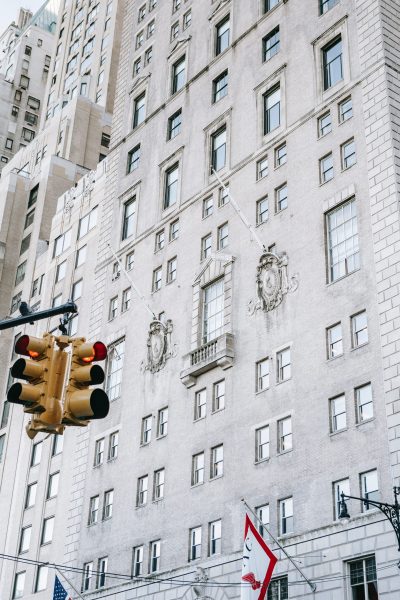New Rent Relief Program Will Give Grants Directly To D.C. Landlords
 A new D.C. program lets landlords apply directly for $10 million in government grants to cover tenants’ missed rent payments during the coronavirus pandemic.
A new D.C. program lets landlords apply directly for $10 million in government grants to cover tenants’ missed rent payments during the coronavirus pandemic.
The District is using money from the federal CARES Act to fund the program, which will focus on units considered affordable and small landlords with 20 or fewer units. Called “Housing Stabilization Grants,” the program will cover missed payments between April and November.
The city plans to cover 80% of a tenant’s rent arrears, up to $2,000 a month, if the landlord forgives the remaining 20%. As many as 30,000 units in 274 affordable projects could be eligible for the grants, according to Christopher Donald, the interim director of the D.C. Housing Finance Agency. Those projects are also financed by the District’s primary affordable housing fund, low-income housing tax credits, or other local and federal housing subsidies.
The majority of the grant money — $9 million — will go toward affordable housing projects in the District. The remaining $1 million is set aside for small landlords.
“This pandemic has forced an unprecedented and disproportionate financial burden on our low-income renters, through no fault of their own,” D.C. Mayor Muriel Bowser said in a statement Monday. “By allowing housing providers to apply for assistance on behalf of tenants, we can provide swifter relief.”
The D.C. Council suspended evictions in March as the pandemic gripped the city. Lawmakers have also established other emergency tenant protections, such as a ban on rent increases and a requirement that landlords offer alternate payment plans to tenants who lost their jobs.
Tenants and housing advocates have demanded rent forgiveness to avoid a massive eviction crisis once these policies expire at the end of District’s public health emergency. But landlords say they also need help to get through the recession, with small landlords in particular arguing that these tenant protections pose a burden on them.
On Monday, Bowser also announced the city was adding another $4 million to the Coronavirus Housing Assistance Program, bringing its total funding to $10.2 million. Landlords will be able to apply for this funding on behalf of their tenants as of January.
“We heard the District’s small housing providers, loud and clear,” said Polly Donaldson, the director of D.C.’s Department of Housing and Community Development, in a statement. “They want to be able to apply for assistance on behalf of their tenants, and now they can.”
The new grant program comes as welcome news for small landlords. Dean Hunter, who heads the Small Multifamily Owners Association, a newly formed trade group that advocated for the new grant program, says they’re a “step in the right direction.”
“This is going to help a lot of housing providers stay afloat and come out ahead,” says Hunter, “because people were really hurting for a long time.”
Hunter adds that, despite the significant need for rental assistance, D.C. residents haven’t applied in huge numbers for existing aid programs. City officials have allocated only about $500,000 of the $6.2 million initially available through the District’s Coronavirus Housing Assistance Program, according to Bowser’s office.
“No one wants anyone thrown out for the inability to pay rent, [but] the reality of the matter is that tenants have not been accessing the rental assistance funds,” Hunter says.
Donaldson has suggested one reason for this lack of uptake could be that renters are already protected from legal evictions. Hunter also faults the city for insufficiently advertising the program. (“Have you seen it on a bus? Have you seen a TV commercial about it? No,” he says.)
As for the new grant program, Stephanie Bastek, an organizer with the organization Stomp Out Slumlords, likes how it puts the responsibility for requesting relief on landlords. “It is cumbersome and difficult to apply for rental relief funding,” Bastek says about tenants. “It’s also humiliating.”
Tenants and activists are organizing rent strikes across the city, demanding rent forgiveness until the coronavirus pandemic subsides. Bastek says she’s glad to see landlords will need to cover a portion of tenants’ missed rent payments under the city’s new program, but she worries some property owners will increase rents in the future to make up for those costs.
Given the scale of the economic crisis, she also says this money will only go so far and help a limited number of people stay stably housed. “People have been getting jobs, losing those jobs, gaining hours, losing hours, with the whims of the virus,” Bastek says. “I have not spoken to a single person who is only one month behind [on rent], and I would venture to say I have not spoken to a single person who is only two months behind [on] rent.” In addition, many of the buildings whose tenants are on rent strike are too large to be eligible for the program, having more than 20 units.
More federal funding will be critical going forward, says John Falcicchio, the deputy mayor for planning and economic development and Bowser’s chief-of-staff.
“The reason why federal aid is so important is, one, it allows us to take a crack at this program,” he says, but additional money would help the city reach more tenants and housing providers.
“We can’t get through this without more support from the federal government,” Falcicchio says.
Applications for the Housing Stabilization Grants opened Tuesday and will close on Dec. 11.
Source: dcist.com















 Accessibility
Accessibility